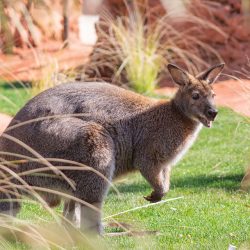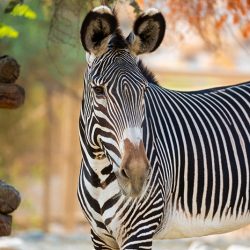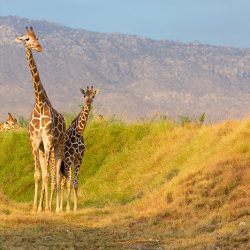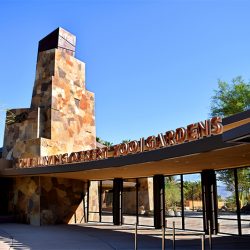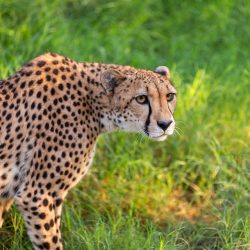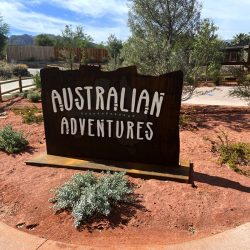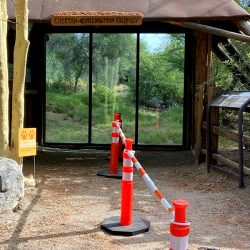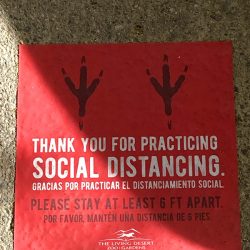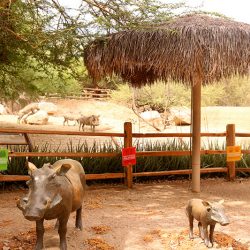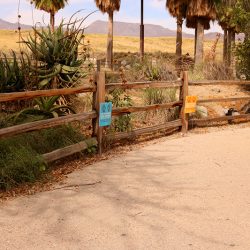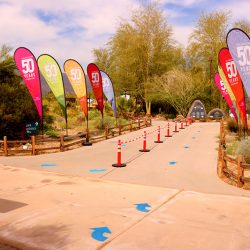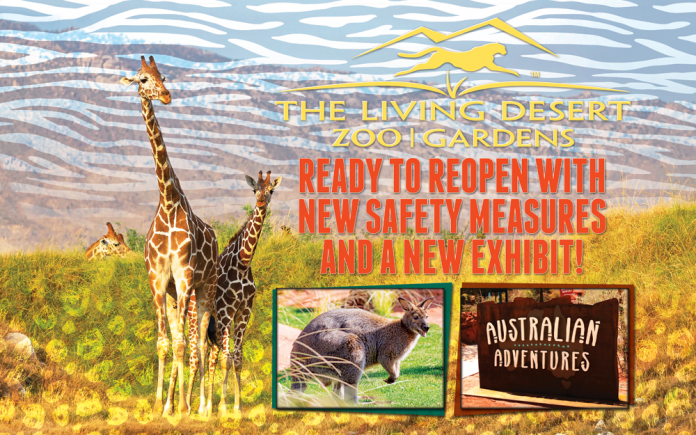
By Crystal Harrell
The Living Desert Zoo and Gardens has been a major Coachella Valley attraction for decades, but the forced shut-down of all essential businesses by Governor Newsom in March to prevent the spread of COVID-19 has financially impacted the famous desert staple during what is always its busiest season.
Three-and-a-half million dollars has been lost in the spring season, usually a peak time for field trips and large vacation crowds. The staff has also significantly been downsized, keeping only 53 of the over 150 employees to maintain the wildlife and upkeep of the Zoo.
“Right now, we are anxiously awaiting approval from the state to allow zoos to move forward. They are currently lumped with casinos, concert venues, and nightclubs as high-risk activities. The zoo community has been making the argument that’s not really accurate because we have acres and acres of outdoor spaces and open air habitats to look at that are quite different from an indoor facility. If the public would like to send an email to the governor and let him know that zoos should be open, that’ll help us get back into operation and continue with our conservation messages,” explained The Living Desert President and CEO Allen Monroe.
Once given the go-ahead to reopen by the state, The Living Desert has already implemented a number of protocols to ensure the safety of guests as COVID-19 persists. Enclosed buildings and tactile exhibits such as bird aviaries and reptile house will remain temporarily closed, including the carousel and play areas, as they are difficult to keep sanitized.
Hand sanitizing stations are placed in eight locations around the Zoo and touchable surfaces including counters, doors, restrooms and drinking fountains will be disinfected regularly. All of the formerly dine-in food and beverage outlets are now take-away only and communal seating areas have been distanced at least six feet apart. Staff and volunteers are required to follow OSHA and CDC health guidelines and are not to report to work if they are experiencing any signs or symptoms of COVID-19. The use of face masks will be mandatory for guests, and disposable ones will be provided to those who are admitted without one.
There will be a new way of admitting guests with timed ticketing for contact-free and expedited admissions. Upon reopening, The Living Desert will now require the advance purchase or registration of timed tickets for entry, including for current zoo members. This is to help implement capacity limits with 200 guests per hour, with a maximum of 1,000 guests per day. Guests are encouraged to pre-purchase their tickets online or at one of the ticketing kiosks. Each guest will then present their ticket to be scanned at the admission gate. An acrylic shield has been installed at the admissions windows to minimize contact between staff and guests.
After reopening, visitors can also finally experience the new Australian Adventures exhibit, featuring a variety of wildlife native to the continent. The exhibit was originally to open to the public on March 21, but the sudden Zoo closure on the 17th prevented that from happening. Some of the animals that Australian Adventures houses include: emus, kookaburras, and two species of wallaby. Guests will be able to walk among Bennett’s Wallaby, as their enclosure has no fence and they are docile towards people.
“Being closed right now means that children especially are being deprived of the educational experiences that would help them in the future to be better citizens, and to have more knowledge and understanding of the world around them. We look forward to teaching them even more with this experience,” said Monroe.
While The Living Desert remains closed for the time being, members and supporters can still donate to assist in the care of its wildlife, as most of the Zoo’s revenue comes from memberships and admission sales. The Mission: Animal Care program enables patrons to become Champions of Conservation with donation of a monthly gift to help care for the cost of feeding an animal. Some examples are a gift of 75 dollars feeding a zebra each month and 100 dollars will feed a bobcat each month.
Even though the physical store may be closed, The Living Desert’s online gift shop is also open for unique merchandise and gifts that will tide young ones over during the quarantine season or for some zoo-themed memorabilia to wear during your next visit after reopening. There is also a program in place that enables supporters to symbolically “adopt” an animal at the Zoo, where they will receive a stuffed animal and other materials relevant to the species of animal in return for their gift.
“We are really appreciative of the support we’ve seen from the community. The donations—small and large—have helped offset the millions of dollars of lost revenue over the last two months. We have prepared the park to welcome guests back by putting in place a really robust COVID mitigation plan to make sure the guests, the staff, and even the animals are going to be safe under this new situation we have to operate in,” stated Monroe.



































